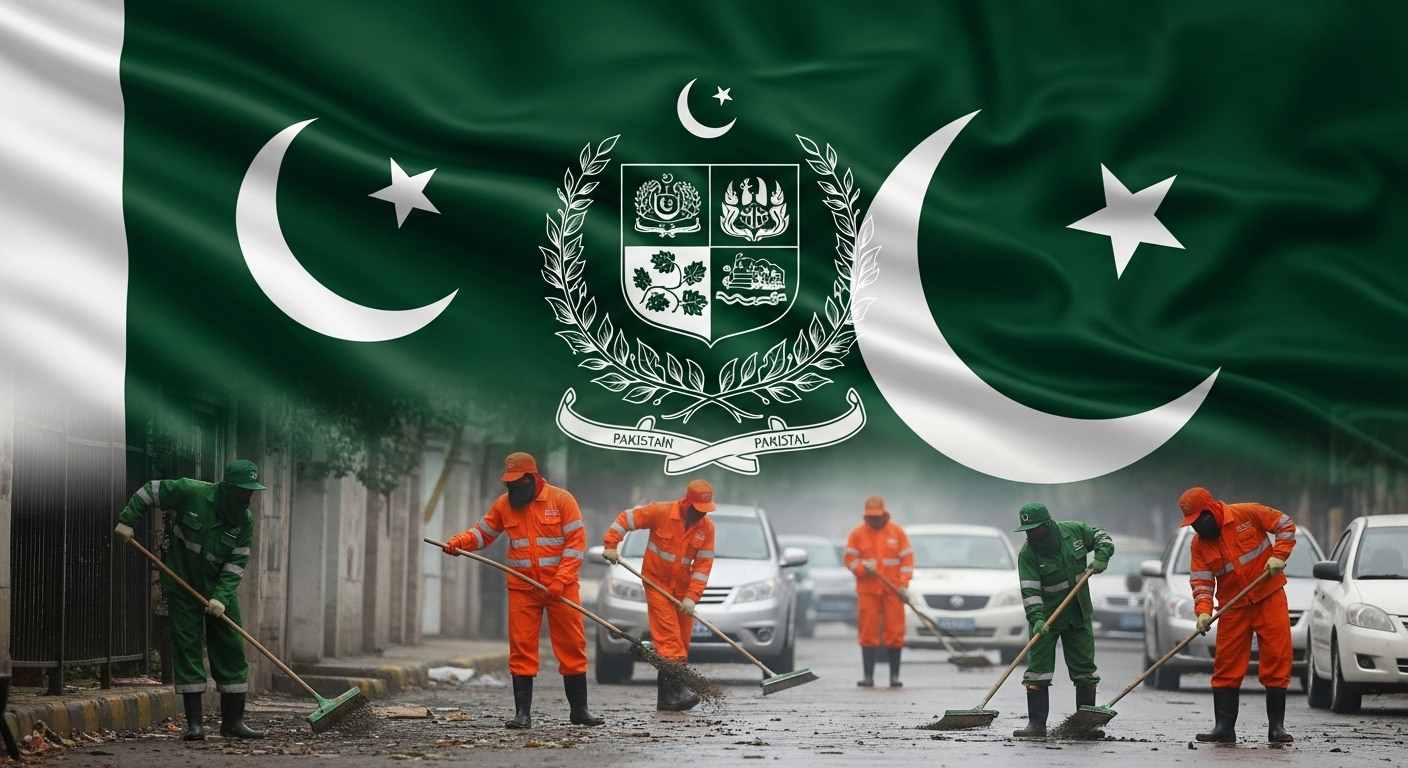Pakistan’s Clean Future: How Citizens and Government Can Together Eliminate Pollution and Ensure a Cleaner Environment

Pakistan, a country of vast natural beauty, majestic mountains, and fertile plains, is facing an alarming environmental crisis due to increasing pollution and lack of systematic cleanliness. From urban areas like Karachi, Lahore, and Islamabad to the rural corners of Sindh, Punjab, and Khyber Pakhtunkhwa, the problem of uncollected waste, air contamination, and water pollution is threatening public health and environmental stability.
To restore Pakistan’s environment and create a clean, green future, both the government and the public must work hand in hand. The responsibility of cleanliness and environmental sustainability lies not just on the authorities but also on the shoulders of every citizen.
Current Environmental Challenges
Pakistan produces approximately 3 million tons of plastic waste annually, a large portion of which ends up in rivers, streets, and landfills. Moreover, urban centers are witnessing growing levels of air pollution, mainly due to unchecked vehicular emissions, industrial waste, and burning of garbage in open spaces. According to environmental reports, cities like Lahore and Karachi frequently rank among the most polluted cities in the world.
Unmanaged sewerage, illegal dumping, and deforestation have further intensified the situation. Water bodies, once sources of life, are now contaminated with hazardous chemicals, threatening aquatic life and human consumption alike.
Role of Citizens in Cleaning Pakistan
For a cleaner Pakistan, public cooperation is essential. Here are some crucial actions that every Pakistani can take:
- Avoid Littering:
The first and most important step is to stop throwing garbage on roads, streets, and public places. Every citizen should make it a habit to dispose of trash in designated dustbins. - Participate in Clean-Up Drives:
Community-level cleanliness campaigns, especially in neighborhoods, schools, and workplaces, can foster a sense of responsibility and unity. - Reduce, Reuse, Recycle:
Reducing the use of plastic products, reusing household items, and recycling waste can significantly decrease the amount of trash produced daily. - Use Public Transport or Carpooling:
To reduce air pollution, citizens should opt for public transport or share rides instead of using personal vehicles unnecessarily. - Spread Awareness:
Social media platforms, schools, mosques, and community centers can be used to educate others about the importance of keeping the environment clean.
Government’s Role and Necessary Initiatives
While public participation is crucial, the government must also play a proactive role through legislation, enforcement, and infrastructure development. Here are key measures that the authorities should implement:
- Strict Enforcement of Waste Management Laws:
Municipal bodies must ensure timely garbage collection and penalize illegal dumping. Companies and individuals violating environmental laws should face heavy fines. - Expansion of Green Spaces:
Plantation drives and creation of urban forests can reduce carbon emissions and improve air quality. Programs like “10 Billion Tree Tsunami” must be expanded and monitored transparently. - Industrial Regulation:
Industries should be required to treat their waste before discharging it into rivers or air. Installing pollution control units must be made mandatory. - Public Transport Upgradation:
Introducing eco-friendly buses, electric vehicles, and efficient public transport systems can drastically reduce emissions from private vehicles. - Waste Segregation Systems:
Garbage must be collected in separate categories—organic, recyclable, and hazardous—to make waste disposal more efficient and environmentally friendly. - Clean Water and Sanitation Projects:
Government should invest in water treatment plants and ensure clean drinking water across urban and rural areas. Improved drainage systems will prevent overflow and reduce diseases.
A Shared Responsibility for a Better Tomorrow
Cleaning Pakistan is not the job of a single institution—it is a collective duty. A clean environment leads to a healthier population, stronger economy, and better global image. Countries like Singapore and Rwanda have achieved impressive cleanliness through unified public behavior and strict government policies. Pakistan can also follow this path.
Educational institutions, media, religious leaders, and celebrities should be involved in promoting cleanliness as a national priority. National-level campaigns like “Clean Green Pakistan” should be revived with more intensity and accountability.
Conclusion
The road to a pollution-free and clean Pakistan is challenging but achievable. It requires vision, willpower, and unity. Every act—no matter how small—counts. Throwing trash in a bin, planting a tree, saving water, or raising your voice for clean air can lead to a nationwide transformation.
If the people of Pakistan take this mission seriously and the government plays its due role with sincerity and consistency, then a cleaner, greener, and healthier Pakistan will no longer be a dream, but a reality.

